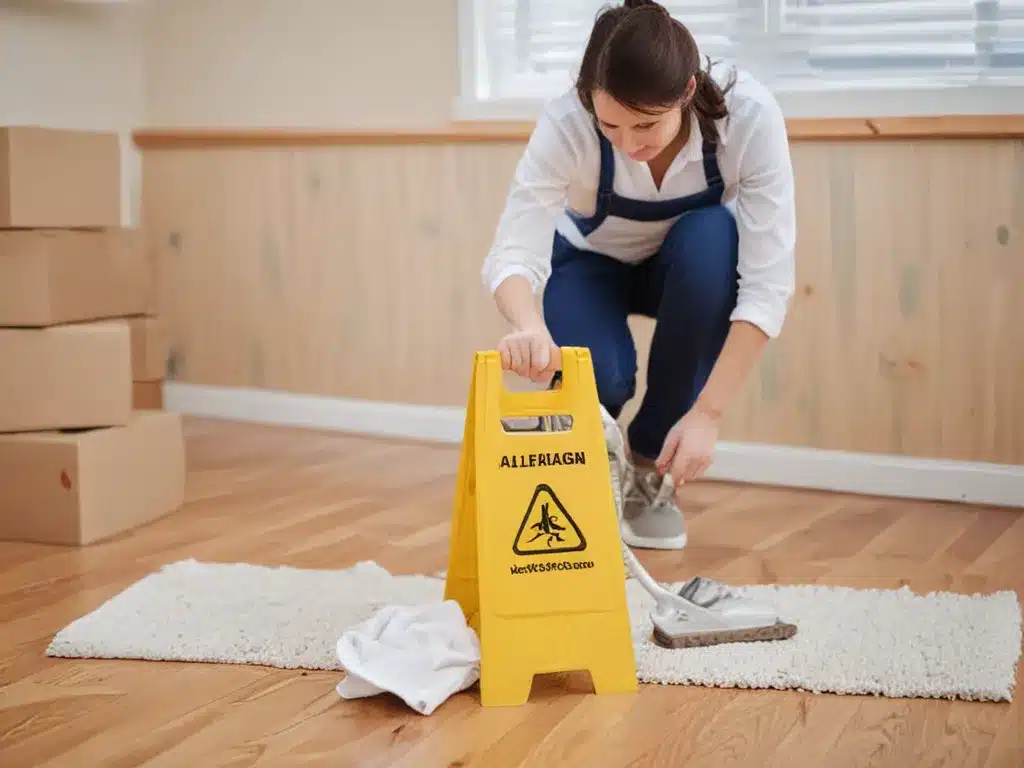Introduction
As a property owner preparing rentals, it is important to understand and mitigate indoor allergens to provide a healthy living environment for tenants. Indoor allergens like dust mites, pet dander, mold, and pests can trigger allergic reactions and asthma symptoms. By taking proactive steps to remove or reduce these allergens, I can make my rentals more appealing to prospective tenants while also fulfilling my responsibilities as a landlord. In this article, I will provide an in-depth overview of preparing rentals by removing common allergens.
Identify Potential Allergens
The first step is conducting a thorough assessment to identify potential allergens in the rental property. Here are some of the most common allergens to look out for:
Dust Mites
- Microscopic bugs that live in bedding, carpets, curtains and upholstered furniture
- Feces and decaying bodies can trigger allergic reactions and asthma
- High humidity levels allow dust mites to thrive
Pet Dander
- Microscopic flakes of skin and fur shed by cats, dogs, rodents, birds and other pets
- Even after pets are removed, dander can linger in carpets, walls and ventilation systems
Mold
- Fungi that grow in damp areas like walls, showers, windows and basements
- Inhaling mold spores can cause allergy and asthma symptoms
- Any water leaks or moisture issues can lead to mold growth
Pests
- Cockroach and rodent droppings and body parts are potent allergens
- Nesting areas like basements and crawl spaces may harbor pests
- Pests are attracted to food debris and water sources
Identifying these common triggers will allow me to develop a targeted allergen removal plan.
Deep Cleaning and Sanitizing
Now that I know which allergens to look for, I can implement a deep cleaning regimen in the rental:
Wash All Laundry Items
- Wash all bedding, drapes, towels, and other laundry items before tenants move in
- Use hot water to kill dust mites and remove allergens
- Consider adding allergen-reducing detergent
Steam Clean Carpets
- Carpets harbor dust mites, pet dander, pest allergens and mold
- Professional steam cleaning extracts these allergens from carpets
- Steam clean carpets, area rugs, upholstered furniture
Disinfect All Surfaces
- Use all-purpose disinfectants on hard surfaces like floors, baseboards, countertops
- Disinfect bathroom and kitchen surfaces to remove mold and bacteria
- Pay close attention to greasy areas around stoves and sinks
Dust and Vacuum Thoroughly
- Use microfiber cloths and vacuum attachments to reach cracks and crevices
- Replace vacuum bags frequently to contain allergens
- Vacuum drapes to remove accumulated dust and dander
Completing a rigorous deep cleaning routine will help prepare a rental that is free of most triggers for new tenants.
Apply Preventative Measures
In addition to cleaning, I also need to apply some preventative measures to maintain a low-allergen environment:
Install Air Filters
- High-efficiency HVAC air filters trap dust, pollen and other particles
- Replace filters 3-4 times a year according to manufacturer recommendations
- Consider standalone air purifiers with HEPA filters for bedrooms
Fix Water Leaks Promptly
- Monitor for plumbing leaks and water damage to prevent mold growth
- Respond quickly to tenant reports of leaks or moisture
- Thoroughly dry affected areas within 24-48 hours
Seal Entry Points for Pests
- Use caulk and weather strips to seal cracks around windows, doors and utilities where pests can enter
- Fix holes in screens and install door sweeps under exterior doors
- Ask tenants to report any pest sightings immediately
Establish No Smoking Policy
- Secondhand smoke contains many allergens and irritants
- Designate rentals as no smoking allowed
- Clearly state this in the lease agreement and all listings
Implementing these preventative measures demonstrates my commitment to maintaining healthy living spaces for tenants.
Respond to Tenant Requests
Even after addressing common allergens, I need to respond promptly if tenants report allergy or asthma issues:
- Ask tenants to provide specifics about suspected triggers
- Whether it is pet dander from a neighbor or mold around the bathroom sink, take concerns seriously
- Schedule any needed inspections or remediation services right away
- Follow up with tenants about actions taken and determine if issues are fully resolved
Being responsive to tenant concerns can prevent major problems down the road. By showing that I take a proactive stance on allergens, tenants will appreciate my efforts to make their living situation healthier.
Conclusion
Preparing rentals requires an ongoing diligence to identify and control indoor allergens. As a property owner, creating a breathable and livable space for tenants should be one of my top priorities. By using a complete approach of deep cleaning, preventative measures and prompt response to concerns, I can make significant strides in reducing allergens. Taking these steps demonstrates I am a thoughtful landlord who values tenant health, comfort and satisfaction in the rentals I provide.







